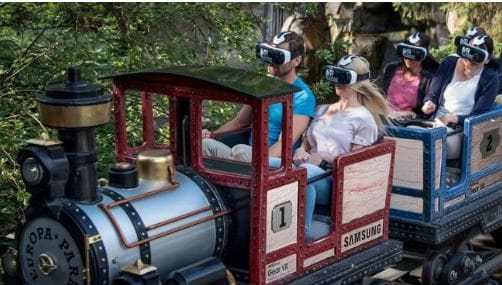Today I want to talk to you about the effects that smart contracts will have on the shipping industry. Did you know that one of Maersk’s largest vessels is longer than three football fields, with a capacity of carrying upwards to 18,000 containers? These are immense numbers and it is key to unload the ship quickly so the goods and the ship can go on its way. However, if you have been to the port of Rotterdam, you can see lines of trucks waiting for cargo. This is because the shipping industry faces a big problem that crushes efficiency. This is because the industry still relies on offline, paper-based processes. This gives immense administrative costs and inhibits companies to see the status of their goods. Smart contracts can be used to transform this industry, increasing efficiency, cut down time and majorly impacting administrative costs.

However, let me first give an definition for smart contracts. Smart contracts are stored on a blockchain and they are simply said programs that will automatically run if predetermined conditions are met. Part of these programs can be wiring funds or sending notifications and the blockchain is then updated when the transaction is complete. This can all happen without intermediaries and one of blockchains characteristics is that transactions cannot be changed. It is used for security (it is encrypted), transparency (all records are shared with the participants); cut costs (no intermediaries) and speed (immediate execution).
Maritime shipping accounts for about 90% of global trade and due to falling freight prices, there is a pressure to cut down costs and increase efficiency. This lack of efficiency mainly stems from the many different parties that are involved in the shipments. You have the ship company, freight forwarders (handles movement of goods); customers; trucking companies; warehousing etc. All these actions are arranged in paper-based processes, so shippers need thousands of papers with information, contracts, checklists etc. This method takes a long time and is also error-prone. Papers get lost and checks can be filled in wrong, taking a long time for respective parties to receive pay. Additionally, the cost of maritime fraud is estimated to be $600 Billion a year.
The aforementioned is where smart contracts can help. Smart contracts provide transparency. It is online, so companies can receive immediate updates, for example, when a truck leaves the port. Also, blockchain cannot be changed, so the transactions are stored easily and safely. The automatic execution of smart contracts allow, for example, to be immediately paid when a certain action is done (e.g. unloading). All in all, it can have a major impact.
However, some of the challenges are that a whole digital system needs to be built on blockchain, which is an immense, costly process. Furthermore, all the parties need to agree and cooperate to make this work, which can be especially challenging for getting authorities on board. It requires trust.
So what do you think, are smart contracts the solution to this problem and do you actually see it being standard practice within the next 10 years?
References:
https://www.ibm.com/nl-en/topics/smart-contracts
Lal, R. & Johnson, S. (2018). Maersk: Betting on Blockchain. Harvard Business school
https://www.google.com/url?sa=i&url=https%3A%2F%2Fwww.vesselfinder.com%2Fnl%2Fvessels%2FMARSEILLE-MAERSK-IMO-9778844-MMSI-219854000&psig=AOvVaw0Q20aE1p025HYiYrmcZKb8&ust=1633725201059000&source=images&cd=vfe&ved=0CAsQjRxqFwoTCKjC9-OSufMCFQAAAAAdAAAAABAI


